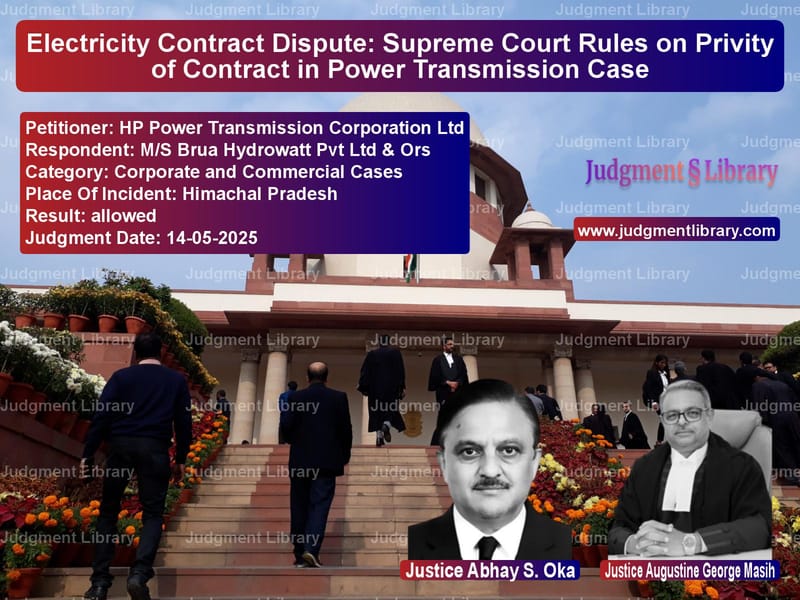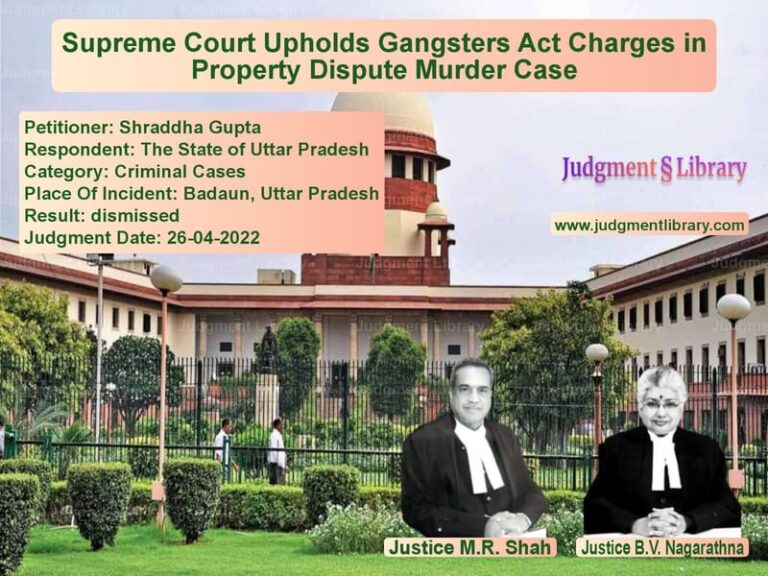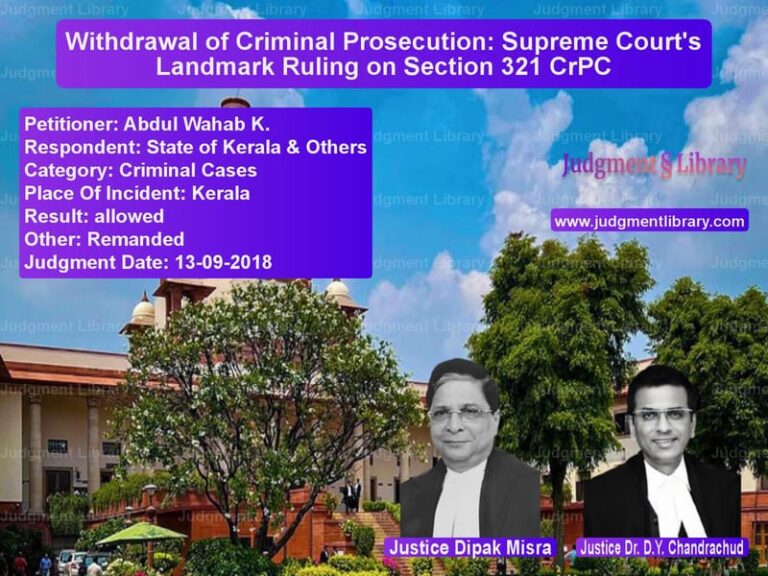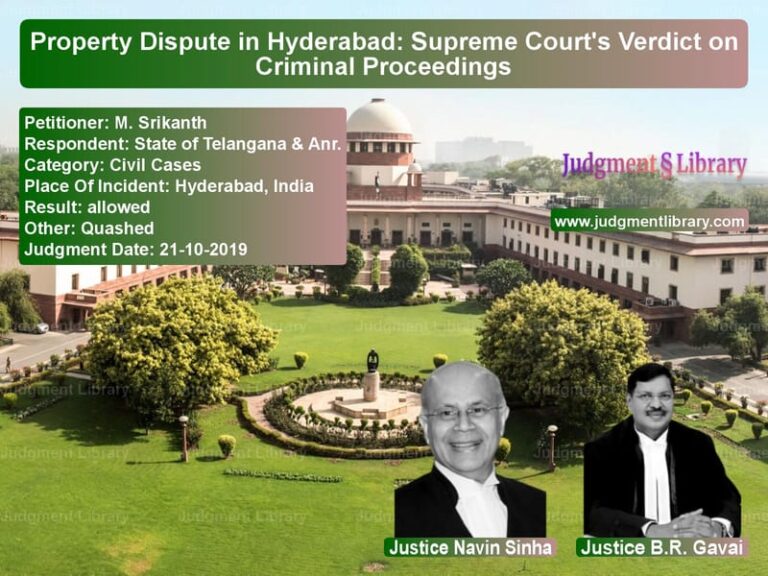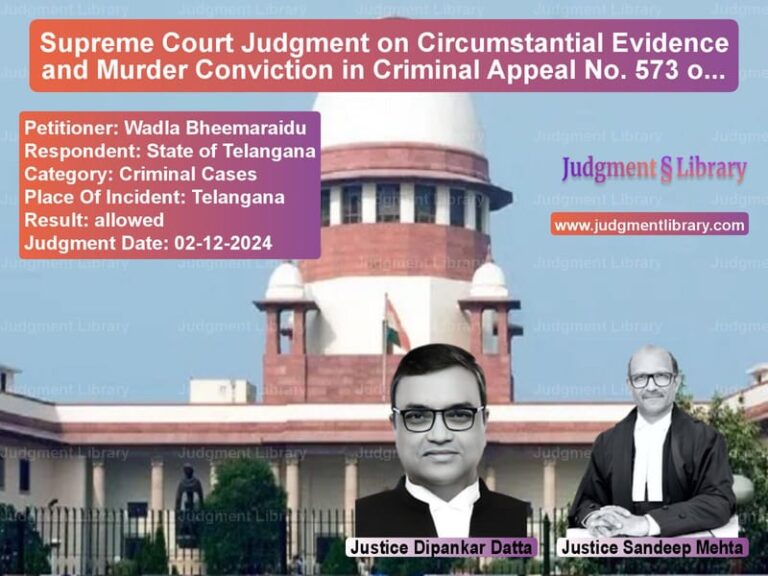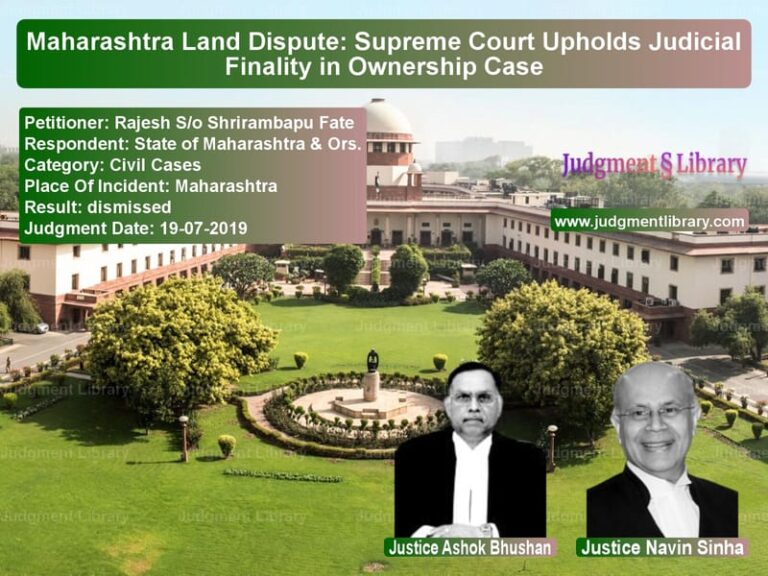Electricity Contract Dispute: Supreme Court Rules on Privity of Contract in Power Transmission Case
In the picturesque hills of Himachal Pradesh, where hydroelectric power flows as abundantly as the mountain streams, a complex legal battle unfolded that would ultimately reach the highest court in the land. This is the story of three power companies, one transmission corporation, and a fundamental legal principle that would determine who pays for what when contracts are signed and obligations are created. The case, which began with ambitious plans to harness renewable energy, eventually became a textbook example of contract law in action, testing the age-old doctrine of privity of contract in the modern context of power transmission agreements.
The dispute centered around the HP Power Transmission Corporation Ltd (HPPTC), the state transmission utility responsible for building and maintaining the electrical infrastructure that powers Himachal Pradesh. On the other side stood M/s Brua Hydrowatt Pvt Ltd (BHP Ltd), a company developing a 9 MW hydroelectric project in the Kinnaur district. The case also involved two other power companies – M/s Darjeeling Power Pvt Ltd and M/s Roura Non-Conventional Energy Pvt Ltd – who were developing smaller hydro projects in the same region.
The heart of the matter was a switching station bay at Urni, a crucial piece of infrastructure that would allow all three power companies to connect their projects to the state’s transmission system. The bay, constructed by HPPTC at significant cost, served as the common connection point for all three projects. But when the bill came due for approximately 3.42 crore rupees, the question arose: who should pay for it?
BHP Ltd argued that while they had applied for the connection on behalf of all three companies, the cost should be shared proportionally according to each company’s generating capacity. They pointed to an internal agreement they had signed with the other two companies in December 2019, which specifically stated that “the entire cost of common 66kV terminal bay including metering arrangements required to be in place for metering purpose etc. shall be shared by the IPPs in proportionate to their individual generating capabilities.”
HPPTC, however, maintained that their contract was solely with BHP Ltd, and under that contract, BHP Ltd bore full responsibility for all payments. The Connection Agreement dated July 2, 2021 clearly stated that “the applicant declares that it shall pay the cost towards modification/alterations to the Infrastructure of STU” and specifically under Clause 2.4 that “the applicant will execute an agreement with STU for the erection of equipment of applicant or intra-state transmission licensee/Distribution Licensee in the substation premises of the STU for construction of bays, if required. For this purpose the applicant shall pay charges to the STU on mutually agreed terms.”
When BHP Ltd received the bill for the bay construction, they reached out to the other two companies, asking them to pay their proportionate shares. While one company agreed, the other expressed inability to pay at that time. BHP Ltd then offered to pay their own share and that of the willing company, requesting that HPPTC collect the remaining share directly from the third company later. HPPTC rejected this proposal, insisting that BHP Ltd was solely responsible for the entire amount under their agreement.
This disagreement led BHP Ltd to approach the Himachal Pradesh Electricity Regulatory Commission, which ruled in favor of HPPTC. The State Commission observed that “BHP Ltd was acting as the lead partner of the consortium, while it applied for the connection for all three projects and agreed to pay the cost of construction, additional charges, and O&M Charges to the HPPTC Ltd, with the expectation that the amount would be reimbursed by the Respondent No.02 and Respondent No.03 in their proportionate shares, which aspect of liability had been acknowledged by them.” The Commission further noted that “recovery, if any, from Respondent No.02 and Respondent No.03 was an internal matter between them, and the HPPTC Ltd had no concern.”
Unsatisfied with this outcome, BHP Ltd appealed to the Appellate Tribunal for Electricity (APTEL), which reversed the State Commission’s decision. APTEL found that “Clauses 2.4 and 2.5 of the CA dated 02.07.2021 do not indicate that the BHP Ltd agreed to pay the entire Bay charges and O&M Charges on behalf of Respondent No.02 and Respondent No.03, in addition to its own liabilities.” The Tribunal also noted that the agreement “does not address the scenario where one of the generating companies fails to pay the Bay charges or does not commission its project, leaving the lead member responsible for the costs and charges of such defaulting generating Company.”
APTEL further observed that the internal agreement between the three power companies couldn’t be relied upon by HPPTC since HPPTC wasn’t a party to that agreement. The Tribunal directed HPPTC to provide connection to BHP Ltd and the other compliant company upon payment of their respective shares, essentially requiring HPPTC to deal separately with each company for their proportionate payments.
This decision prompted HPPTC to approach the Supreme Court, arguing that APTEL had misinterpreted the contractual relationships and created an unworkable situation. HPPTC’s counsel asserted that “even by virtue of the ITA dated 27.12.2019 it was the BHP Ltd who was liable to act on behalf of other two generating companies and the mandate was limited to recovery of the proportionate charges by BHP Ltd from the other generating companies.” They emphasized that “as a stranger to the ITA dated 27.12.2019, HPPTC Ltd cannot seek or enforce to recover the other part of charges from Respondent No.02 and Respondent No.03 which APTEL failed to appreciate while directing HPPTC Ltd to do so.”
BHP Ltd, meanwhile, argued that the case had become irrelevant because they had already complied with APTEL’s judgment by entering into a new operation and maintenance agreement with HPPTC and making the required payments. They contended that “having complied with the Impugned Judgment, the HPPTC Ltd is now precluded from challenging it, rendering this Civil Appeal infructuous.” They also noted that “separate bills have been raised by the HPPTC Ltd for the three generating companies vis-à-vis payment of provisional O&M Charges for April 2023 to March 2024” which showed that HPPTC had accepted the arrangement of dealing with the companies separately.
HPPTC countered that they had only complied with APTEL’s judgment under protest because “it could not have risked contempt in case of non-compliance as there was no stay on the Impugned Judgment and same does not imply any concession on part of the HPPTC Ltd.”
The Supreme Court, in its judgment delivered by Justice Augustine George Masih with Justice Abhay S. Oka concurring, undertook a detailed analysis of the contractual relationships and legal principles involved. The Court carefully examined the Connection Agreement between HPPTC and BHP Ltd, noting that “Respondent No.02 and Respondent No.03 are not privy to the agreement entered between the HPPTC Ltd and the BHP Ltd.”
The Court’s analysis of the contractual terms revealed a clear picture: “As per this Clause 02, all the charges were to be paid by the applicant therein i.e. the BHP Ltd, which included not only the monthly tariff but the payment of costs towards modification/alteration of infrastructure, the other charges including the payment of damages if caused by the customer to the property of the HPPTC Ltd as also the charges of construction of the Bay. Even the payment of O&M Charges were to be made by the BHP Ltd. These terms make it clear that the sole liability was that of BHP Ltd not only in its individual capacity but also on behalf of the Respondent No.02 and Respondent No.03.”
The Court then turned to the internal agreement between the three power companies, observing that “the ITA dated 27.12.2019, which had been entered into between the three generating companies i.e., BHP Ltd, Respondent No.02, and Respondent No.03 was an internal arrangement between them where the HPPTC Ltd was not a party.” The Court noted that this internal agreement clearly established that “BHP Ltd had taken up the responsibility to be the joint nominee for all three of them to settle the claim, if any, of the deemed generation of projects with the HPPTC Ltd. It clearly laid down that Respondent No.02 and Respondent No.03 would reimburse the proportionate amount due as per the agreement to BHP Ltd within 15 days of raising of the bills by the HPPTC Ltd.”
The Court emphasized the fundamental legal principle at stake: “Liability, if any, being therefore upon BHP Ltd as per the CA dated 02.07.2021 with HPPTC Ltd not being a party to ITA dated 27.12.2019, the latter could not have and cannot claim proportionate shares as per the installed capacity of the project from Respondent No.02 and Respondent No.03. The right, if any, of the claim and recovery of the liability from Respondent No.02 and Respondent No.03 would be only with BHP Ltd.”
In what would become the cornerstone of their judgment, the Court invoked the “Doctrine of Privity, as originally introduced in the decision of Tweedle v. Atkinson and acknowledged by the Privy Council in Janna Das v. Pandit Ram Autar Pande and others, still holds relevance when it comes to contractual rights and obligations of parties inter se.” The Court referenced their earlier decision in Essar Oil Limited v. Hindustan Shipyard Limited and Others where they had “denied the Appellant therein, to sue ONGC for recovery of payment in its capacity as a sub-contractor, as it was not privy to the contract between the ONGC and Respondent-Contractor.”
The Court articulated the practical consequence of accepting BHP Ltd’s position: “In the light of the above legal position, if the contentions of the BHP Ltd are accepted by this Court, HPPTC Ltd would technically have no legal remedy to recover its dues or other charges from Respondent No.02 and Respondent No.03 in event of a default as they are not under any contractual obligation to discharge any liability towards the HPPTC Ltd vis-à-vis the Bay.”
The Supreme Court found that APTEL had erred in its approach: “Therefore, it is our opinion that the APTEL was incorrect in not considering the absence of privity of Respondent No.02 and Respondent No.03 to the CA dated 02.07.2021, especially when it went on to observe that the ITA dated 27.12.2019 cannot be relied upon by the HPPTC Ltd for its contentions as it does not form part and parcel of the CA dated 02.07.2021.”
The Court delivered a clear verdict: “If that be so, as per the terms of agreement, the Impugned Judgment of the APTEL is based upon wrong assumptions and misreading of the terms of agreement ignoring the basic principle that a party not privy to the agreement or contract cannot be, unless the context otherwise makes it apparent, made liable for any term(s) and condition(s) unrelated to it. Accordingly, the decision rendered by the State Commission is good in law, and the observations herein above mandate that the Impugned Judgment as passed by the APTEL be set aside.”
The Supreme Court’s judgment reinstated the original decision of the State Commission, holding BHP Ltd solely responsible for the entire bay construction cost under their connection agreement with HPPTC. While BHP Ltd could seek reimbursement from the other power companies under their internal agreement, that was a separate matter between them, not involving HPPTC.
This case serves as an important reminder of the enduring relevance of basic contract law principles, even in complex modern commercial arrangements involving multiple parties. The doctrine of privity of contract, established centuries ago, continues to provide clarity and predictability in business relationships, ensuring that contractual obligations are enforceable only between those who have actually agreed to them. For businesses entering into multi-party arrangements, the judgment underscores the importance of carefully structuring contracts to clearly define relationships and responsibilities among all involved parties.
Petitioner Name: HP Power Transmission Corporation Ltd.Respondent Name: M/S Brua Hydrowatt Pvt Ltd & Ors.Judgment By: Justice Abhay S. Oka, Justice Augustine George Masih.Place Of Incident: Himachal Pradesh.Judgment Date: 14-05-2025.Result: allowed.
Don’t miss out on the full details! Download the complete judgment in PDF format below and gain valuable insights instantly!
Download Judgment: hp-power-transmissio-vs-ms-brua-hydrowatt-p-supreme-court-of-india-judgment-dated-14-05-2025.pdf
Directly Download Judgment: Directly download this Judgment
See all petitions in Contract Disputes
See all petitions in Company Law
See all petitions in Corporate Governance
See all petitions in Debt Recovery
See all petitions in Corporate Compliance
See all petitions in Judgment by Abhay S. Oka
See all petitions in Judgment by Augustine George Masih
See all petitions in allowed
See all petitions in supreme court of India judgments May 2025
See all petitions in 2025 judgments
See all posts in Corporate and Commercial Cases Category
See all allowed petitions in Corporate and Commercial Cases Category
See all Dismissed petitions in Corporate and Commercial Cases Category
See all partially allowed petitions in Corporate and Commercial Cases Category

